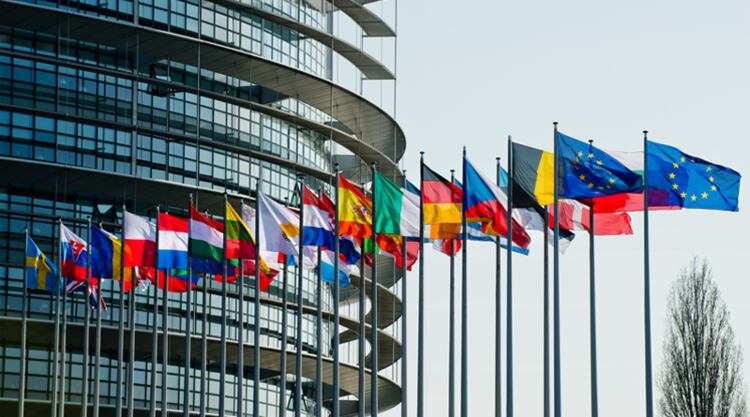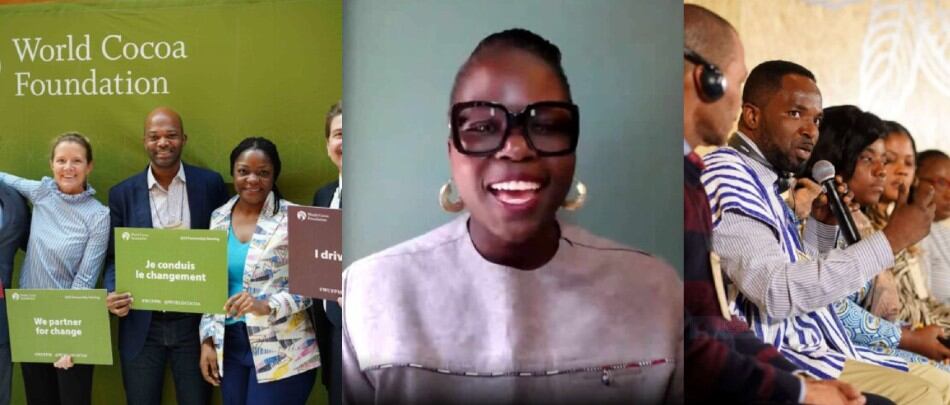Following the news that world leaders signed a plan at Cop26 to reverse deforestation, the EU executive outlined a draft law on Wednesday (17 November) requiring companies to prove that agricultural commodities destined for the bloc’s 450 million consumers are not linked to deforestation.
“What we propose is a pioneering initiative,” said Virginijus Sinkevičius, the EU environment commissioner. “EU action alone will not solve the problem. We also need major markets like the US and China to clean up their supply chain and we need producers to step up protection of the forests, but we stand ready to help.”
Between 1990 and 2008, EU consumption led to 10% of global deforestation, according to the Commission’s own estimate. The proposals are likely to be amended in negotiations between member states and the European parliament before they become law.
Now is the time for a real implementation -- Heidi Hautala, Vice President, European Parliament
The issue of forthcoming legislation was the subject to a lengthy discussion on the second day of the WCF’s online Partnership Meeting.
Opening the session - European Union Due Diligence: A New Era for Cocoa Sustainability? - Koen Doens, Director-General for International Partnerships, European Commission, said that as a Belgian he has a special affinity to chocolate, and hopes that all chocolate will become sustainable in the future.
He told delegates that a common vision for sustainable cocoa production is emerging but to transform a global supply chain, like cocoa is a complex process.
Doens said the European Union and its partners have launched an ambitious sustainable cocoa initiative that aims to improve the economic, the social, and the environmental aspects of cacao production.
“The efforts basically build on the series of policy dialogues that we have convened between cocoa producing countries and value chain stakeholders called, unsurprisingly, ‘The Cacao Talks’.
“These dialogues have been really important to help stakeholders build consensus and build a common vision.
“For instance, in Ghana, the EU has supported the national regulatory authority to set up a multi-stakeholder platform to advance the national dialogue. In Cote d’Ivoire we are supporting the government to develop their national strategy on sustainable cocoa.”
Decent living income
Doens said that all stakeholders agreed that the number one priority was to ensure farmers earn a decent living income.
Speaking directly from the European Parliament in Brussels via video, its Vice President Heidi Hautala told the Partnership Meeting that it is ‘make or break’ time for the planet and humanity.
With criticism from some quarters that the ‘collective will was not enough' shown by leaders at the recent COP26 meeting, she said the green transition is nevertheless accelerating.
“Food production is a major threat to the world's forests and to the climate. It is land intensive and causes land conversion and deforestation. This is particularly true for meat and dairy production - but also the cocoa sector.”
In order to fight global deforestation and biodiversity loss the EU has taken a close look at responsible consumption and production - namely the sustainable development goal, SDG 12.
Hautala said that sustainability is an integrated concept and that human rights are an inseparable part of environmental sustainability.
Green Deal
Under the EU’s Green Deal, it will publish its proposal for a legislation that applies to all companies operating in the EU internal market.
“This proposal, or sustainable corporate governance, includes mandatory human rights and environmental due diligence. This proposal is expected to be firmly anchored in the UN guiding principles on business and human rights, which were unanimously adopted a decade ago.”
Now is the time for “a real implementation,” she told the meeting.
Hautala said to expect in the coming days an EU proposal on deforestation regulation, specifically, on forest risk and commodities where companies will have the obligation to ensure that the products imported into the EU and placed in the EU internal Market have been sustainably produced.
But she said legislation is just one part of the solution and quoted the author of the UN’s guiding principles, Professor John G Ruggie, who said ‘that corporate responsibility is at its best when it's a smart mix of different means’.
“This means that the EU mandatory human rights and environmental due diligence or deforestation regulation on forest risk communities will never be enough on their own. Alongside legislation, voluntary cooperation between companies and other stakeholders will also be needed in the future.”
She said: “I have been a huge fan and supporter of the EU multi-stakeholder platform for sustainable cocoa, ever since it started roughly a year ago. When I speak in public, I often use it as an example on how the EU should draft, its policies, not just on cocoa, but also on other sustainability risk commodities."



